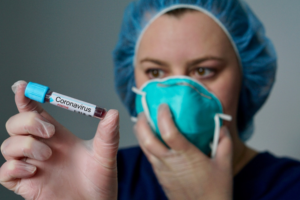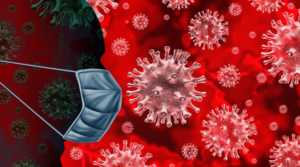 Community associations are wisely thinking about how to meet daily responsibilities while mitigating the spread of this virus. According to the CDC’s current information, person-to-person spread is occurring between people in close contact (within about 6 feet), through respiratory droplets produced when an infected person coughs or sneezes. Some spread might be possible before people show symptoms, but this is currently not thought to be the main way the virus spreads.
Community associations are wisely thinking about how to meet daily responsibilities while mitigating the spread of this virus. According to the CDC’s current information, person-to-person spread is occurring between people in close contact (within about 6 feet), through respiratory droplets produced when an infected person coughs or sneezes. Some spread might be possible before people show symptoms, but this is currently not thought to be the main way the virus spreads.
While there are still unknowns about the virus’s transmission, Goldman & Pease offers our current perspective on how you can take proactive steps to responsibly meet your obligations to residents and owners at this time.
Provide Information to Residents
When communicating to unit owners, we recommend that Boards encourage residents to take their own precautions to limit exposure to the virus or other contagious illnesses such as the flu. At the end of the day, owners will be most responsible for their health and safety, as most guidance to avoid illness highlight an individual’s responsibility.
- Avoid close contact with people who are sick.
- Avoid touching your eyes, nose and mouth.
- Stay in when you are sick, except for receipt of medical care.
- Cover coughs and sneezes with a tissue that is promptly disposed of.
- Frequently clean and disinfect high touch surfaces in your unit or home, including kitchens and bathrooms.
- Wash hands thoroughly before and after eating, after using the bathroom, and after coughing or sneezing (or used alcohol-based sanitizer is a sink is unavailable)
We of course recommend that our clients refer to guidelines provided by the World Health Organization and the CDC to access current information regarding the prevalence and transmission of the virus.
 From a legal perspective, responsibilities in a community association will likely fall along familiar lines of ownership: the association controls the common areas and facilities, and unit owners are responsible for their private property.
From a legal perspective, responsibilities in a community association will likely fall along familiar lines of ownership: the association controls the common areas and facilities, and unit owners are responsible for their private property.- Conducting more regular and more extensive cleaning and disinfecting of common area and facility surfaces, with a focus on “high-touch” surfaces such as lobby phones, elevator buttons, hand rails and door handles.
- Installing hand sanitizer stations or offer wipes and no-touch trash cans in common areas and facilities.
- If Illness becomes widespread, temporarily closing common facilities such as gyms, clubhouses and pools.
- Rescheduling or cancelling community or building events or meetings scheduled to take place in common areas.
- Health organizations do not currently believe the Coronavirus is spreading through HVAC or plumbing systems. If that understanding changes, the Board should consult its plumbing or HVAC service company and/or manufacturer to determine feasible approaches to limit the spread of the virus through duct or plumbing systems.
- If the Board determines additional steps are necessary to protect residents, do not single out individuals by identifying characteristics. The Board may instead choose to adopt a building-wide policy such as: if certain illness symptoms are present, a person’s access to common areas and facilities are limited to using common areas as pass-throughs to access units. A Board should consult with counsel to confirm that any proposed policy along these lines is not discriminatory and otherwise complies with the Fair Housing Act.
Goldman & Pease’s general message to Boards and Associations is to consider immediate increased hygiene efforts by employees and in common areas and to consult with counsel in the near future regarding possible necessary policy changes. Condominiums and HOAs will have different, correct approaches to addressing this challenge depending upon differing owner populations, assessments of risk and governing documents. Before adopting a new policy concerning COVID-19, Goldman & Pease recommends consulting with counsel and other industry professionals as to best practices.
Goldman & Pease is a full-service civil litigation firm which, for over thirty years, has regularly advised and represented condominium boards, property managers, lending institutions, developers, and contractors on best practices and liability reduction measures.

